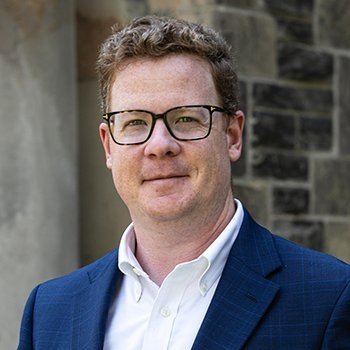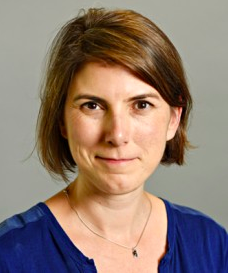Advisory board

Robert Bothwell
Robert Bothwell has taught history at the University of Toronto since 1970, and is the author of major works on Canadian political and diplomatic history. He has served as Director of the International Relations Program at Trinity College, where he holds the May Gluskin Chair in Canadian History. He has been a co-editor and editor of the Canadian Historical Review (1972-80). He is the author or co-author of numerous books, including C.D. Howe (1979), Canada 1900-1945 (1987), Canada Since 1945 (1989), Pirouette (1990), Our Century (2000), Eldorado (1984), Nucleus (1989), Canada and the United States (1992), Canada and Quebec(1995), The Big Chill (1998),The Penguin History of Canada (2006), and Alliance and Illusion (2007).

Margaret MacMillan
Professor Margaret MacMillan became the fifth Warden of St Antony’s College in July 2007. Prior to taking on the Wardenship, Professor MacMillan was Provost of Trinity College and professor of History at the University of Toronto. She was educated at the University of Toronto (Honours B.A. in History) and at St Hilda’s College, and St Antony’s College, Oxford University (BPhil in Politics and DPhil). From 1975 until 2002 she was a member of the History Department at Ryerson University in Toronto and she also served as Chair of the Department. She is a Fellow of the Royal Society of Literature and a Senior Fellow of Massey College, University of Toronto, a Trustee of the Rhodes Trust, and sits on the boards of the Mosaic Institute, the Reuters Institute for the Study of Journalism, the Scholars Council of the Library of Congress, and the editorial boards of Global Affairs, International History, and First World War Studies.

Mayo Moran
Mayo Moran joined Trinity College on July 1, 2014 as the college’s 15th Provost. Moran completed her LLB at McGill University (1990) and subsequently obtained an LLM from the University of Michigan (1992) and an SJD from the University of Toronto (1999). She attended the University of British Columbia for her BA (1980, English and Sociology) and teacher training (1981) and subsequently taught at a secondary school in Prince George, British Columbia before attending law school. Mayo has published extensively in comparative constitutional law, private law, and legal and feminist theory. In 2006 she was appointed Dean and James Marshall Tory Professor of Law at the Faculty of Law University of Toronto, a position she held until 2014, when she became Provost of Trinity College. She also currently teaches first-year tort law at the Faculty of Law.

Ronald W. Pruessen
Ronald W. Pruessen is the Munk School’s Director for International Partnerships & Research and former Chair of the Department of History. His primary research and teaching interests are in 20th century U.S. foreign policy and international relations. Early work focused on the Cold War (e.g., John Foster Dulles: To the Threshold, 1888-1952), but attention to both transatlantic relations and U.S.-China tensions evolved toward the over-arching global perspectives of post-1945 U.S. policy makers as well as the historical roots of “globalization.”

Tim Sayle
Timothy Andrews Sayle is an Associate Professor of History and Director of the International Relations Program. He is the author of Enduring Alliance: A History of NATO and the Postwar Global Order (Cornell, 2019). He has co-edited two volumes: with Jeffrey A. Engel, Hal Brands, and William Inboden The Last Card: Inside George W. Bush’s Decision to Surge in Iraq (Cornell, 2019); and with Susan Colbourn, The Nuclear North: Histories of Canada in the Atomic Age (University of British Columbia Press, 2020). His research on NATO, Canadian-American relations, and intelligence issues has been published in Canadian Military History, Cold War History, Intelligence & National Security, International Journal, International History Review, Historical Journal, International Politics, The Journal of Strategic Studies, and in several edited books.
Professor Sayle is a Senior Fellow of the Bill Graham Centre for Contemporary International History, an affiliate of the Centre for the Study of the United States, and an associate of the Center for Presidential History at Southern Methodist University. He is a Fellow of Trinity College and alumnus of Massey College.
Graduate and undergraduate students at the University of Toronto have worked with Professor Sayle to build Canada Declassified, a web repository of recently declassified archival records. This project has been supported by a SSHRC Insight Development Grant and a Connaught New Research Award. Professor Sayle is a project leader of the Canadian Foreign Intelligence History Project.

Antoinette Handley
Antoinette Handley is Associate Professor and Chair of the Department of Political Science. Her research interests include Research interests: comparative development; the political economy of reform in developing countries; African politics (especially Southern Africa); business-government relations; the political economy of epidemic, especially HIV/AIDS.

Michael Ratcliffe
Dr. Michael Ratcliffe received his B.Sc. from the University of Glasgow and his Ph.D. from University College London in the U.K. After holding positions at the Basel Institute for Immunology and the Imperial Cancer Research Fund Tumour Immunology Unit, Dr. Ratcliffe was recruited to Canada in 1986. After rising through the academic ranks in the Department of Microbiology and Immunology at McGill University, Dr. Ratcliffe was recruited to the Chair of the Department of Immunology at the University of Toronto in 2001. Dr. Ratcliffe is a former President of the Canadian Society for Immunology and the Canadian Federation of Biological Societies and was the recipient of the John D. Reynolds Award in 2011 for contributions to Canadian Immunology.
Recruited to Trinity College as Dean of Arts and Vice-Provost in 2012, Dr. Ratcliffe was recently reappointed for 2018-24. In these positions, Dr. Ratcliffe provides leadership for the academic programs of Trinity College and its relationship with the Faculty of Arts and Science at the University of Toronto.

Janice Gross Stein
Janice Gross Stein is the Belzberg Professor of Conflict Management in the Department of Political Science at the University of Toronto. She is a Fellow of the Royal Society of Canada and an Honorary Foreign Member of the American Academy of Arts and Sciences. She was the Massey Lecturer in 2001 and a Trudeau Fellow. She was awarded the Molson Prize by the Canada Council for an outstanding contribution by a social scientist to public debate. She has received an Honorary Doctorate of Laws from the University of Alberta, the University of Cape Breton, McMaster University, and the Hebrew University of Jerusalem. She is a member of the Order of Canada and the Order of Ontario.

Alison Smith
Professor Smith is a specialist in the history of imperial Russia. Most recently, she has been conducting research about the palace and town of Gatchina, planning to write both a monograph on autocratic authority in the region and also a collective microhistory based on findings from the archives (a first experiment at microhistory is her series of blog posts on "The Case of the Dead Cheese Master" at the Russian History Blog). In addition, she has recently completed a monograph on social status and social mobility: For the Common Good and Their Own Well Being: Social Estates in Imperial Russia (Oxford, 2014), and has also published a series of articles on related subjects, including “Freed Serfs without Free People: Manumission in Imperial Russia,” AHR (2013). Her work on these projects was supported by grants from SSHRC and IREX.
Professor Smith has also published a number of articles and a monograph on food in Imperial Russian history. The monograph – Recipes for Russia: Food and Nationhood under the Tsars (2008) – examines the interaction between foreign knowledge and traditional patterns of behaviour in the production and consumption of food. Her various articles on specific aspects of this general subject include “National Cuisine and Nationalist Politics: V.F. Odoevskii and “’Doctor Puf,’ 1844-5” (2009); “Eating Out in Imperial Russia: Class, Nationality and Dining before the Great Reforms” (2006); and “Public Works in an Autocratic State: Water Supplies in an Imperial Russian Town” (2003). Work on these projects was supported by grants from the Fulbright-Hayes and Mellon foundations.
